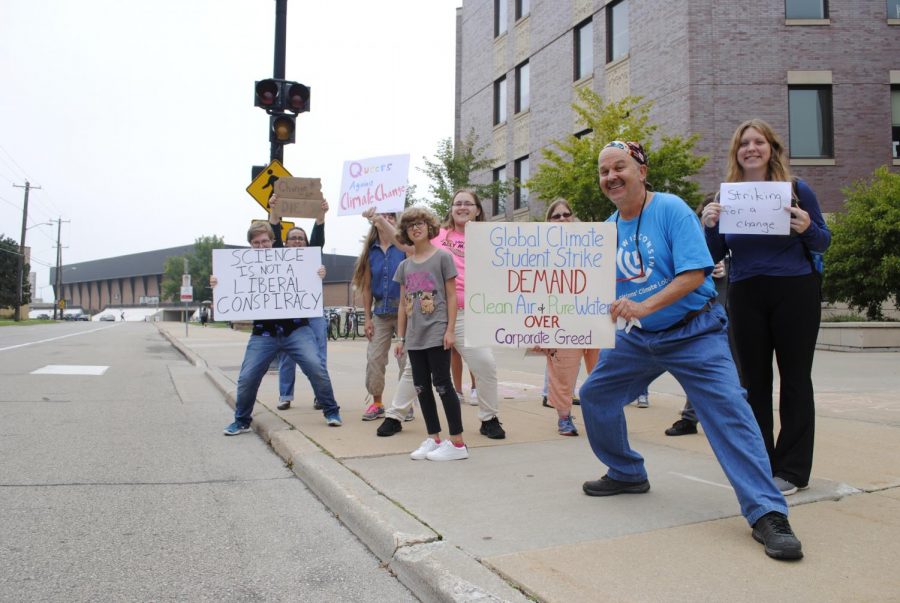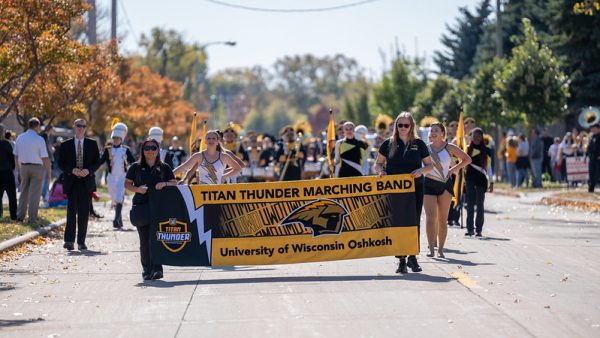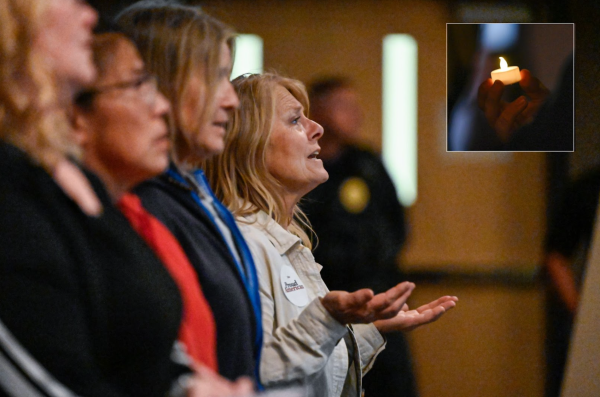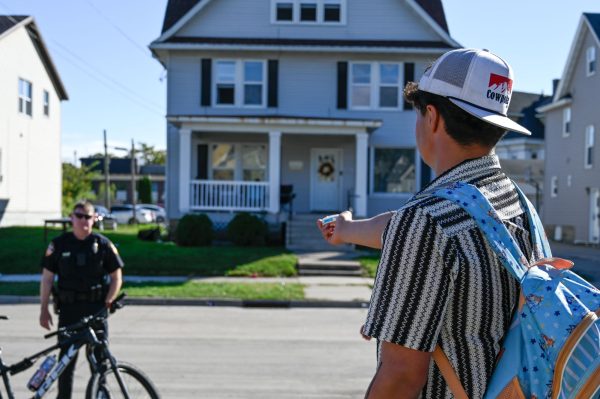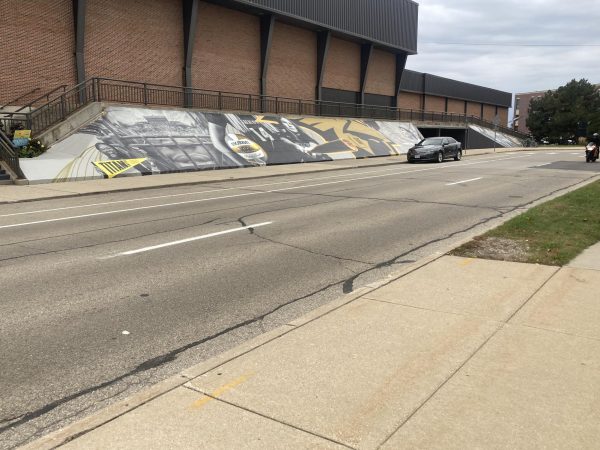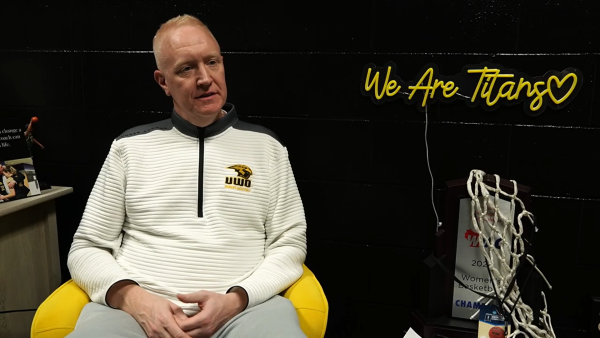UWO joins 150 countries in global climate strike
Students demand climate action.
“Hey, hey, ho, ho, climate change has got to go!” protesters outside of UW Oshkosh’s Sage Hall chanted last Friday as part of a global climate strike.
Millions of students and climate activists in over 150 countries participated in the climate strike with hopes that organized action will jumpstart legislative based climate action all over the world, according to the Global Climate Strike website. The strikes were started in 2018 by teen climate activist Greta Thunberg of Sweden.
In Wisconsin, climate strikes were also held in Milwaukee, Madison and Appleton, as well as Green Bay, Fond du Lac, Sheboygan, Richland Center, Janesville, West Bend and other cities.
The Oshkosh strike was organized by the Student Environmental Action Coalition. According to the group’s website, it aims to uproot environmental injustices through action and education, challenge power structures threatening the environment as well as create environmental and social change.
The group’s faculty adviser, who asked that her name not be published, said the goal of the climate strike was to raise climate change awareness.
“Climate action is important right now; there is no time to wait,” she said. “We are down to … 11 years to take action and some reports are saying we don’t even have that much time.”
The adviser said climate action is feasible; renewable energy sells itself due to it’s decrease in price in recent years.
“It is actually becoming cheaper to use renewable energy,” she said.
Renewable energy is frequently the cheapest source of energy generated, according to the International Renewable Energy Agency.
SEAC member Sophia Wenzel-Berger attended the protest to raise awareness for climate change.
She said the protest was necessary because too many people still deny climate change.
“People are coming together [of] all ages [and] all backgrounds … because climate change is a universal issue,” Wenzel-Berger said.
UWO environmental studies student Burgundy Johnson attended the strike in an effort to protest inaction regarding the progression of climate change.
“We’re past the point of no return of CO2 emissions,” Johnson said. “We need to start removing carbon dioxide from the atmosphere yesterday.”
Johnson believes climate change is the biggest threat to the survival of humanity.
“Ultimately, a simple strike or protest isn’t going to directly accomplish much,” Johnson said. “It’s a protest, but it’s bringing awareness to the issue.”
UWO freshman Parker Neu heard about the protest at a College Democrats of America meeting and was already planning to attend a climate strike protest in Appleton. Neu attended the demonstration on campus because it was closer.
Neu wants to see climate action in the form of the U.S. rejoining the Paris Climate Accord, which is an agreement within the United Nations that addresses greenhouse gas emissions.
Former President Barack Obama signed the Paris agreement at the 2015 United Nations Climate Change Conference. President Donald Trump pulled the U.S. out of the agreement in 2017.
“With the U.S. being one of the biggest [polluters], dropping out of that was a huge problem,” Neu said.
The SEAC adviser said the passage of the Green New Deal will be critical in future climate action, as the proposed legislation aims to address climate change and economic inequality through climate reform.
“Renewable energy actually provides more jobs than fossil fuel,” she said.
Oshkosh resident Anne Ruby found out about the strike at church and attended because she’s worried inaction regarding climate change will leave the earth uninhabitable for her children.
“I’m not seeing the action from the existing leaders that I want to see, so it’s time for me to step up,” she said.
Ruby added that people need to be more aware of the effects of climate change, and that we’re already feeling the effects.
“A lot of people will argue that it has nothing to do with humans, but I don’t think that’s true,” Ruby said. “I think the science tells us that it’s not true.”


